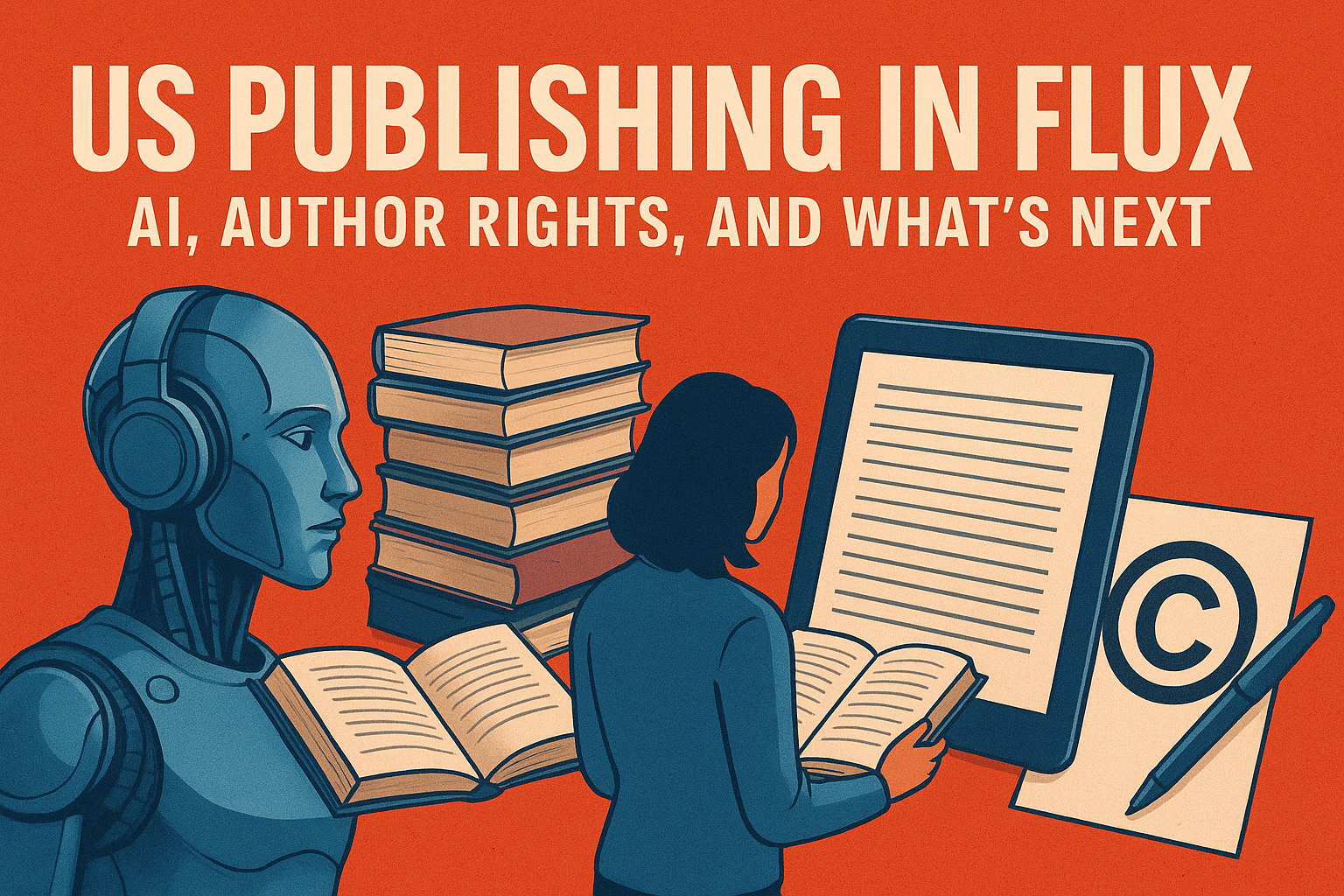A Comprehensive Guide to Marketing Fiction Books

Fiction books are the heart of storytelling, offering readers a passage to other worlds, times, and experiences. They captivate imaginations, evoke emotions, and provide an escape from the mundane. Fiction spans a vast array of genres, each with its unique appeal and ability to resonate with different audiences.
From the intricate character development of literary fiction to the fantastical realms of science fiction and fantasy, the suspenseful twists of mysteries and thrillers, the heartwarming journeys of romance, and the historical richness of period pieces, fiction books explore the depths of human experience and imagination. Each genre invites readers to embark on adventures, solve mysteries, fall in love, or confront fears within the safety of its pages.
For writers, creating fiction is an art that involves crafting compelling characters, developing engaging plots, and building immersive settings. Successful fiction writing not only tells a story but also evokes emotions and connects with readers on a personal level.
In today’s digital age, marketing fiction books effectively is as crucial as writing them. Leveraging online platforms, social media, and targeted advertising can help authors reach a broader audience and turn casual readers into devoted fans.
Whether you are a reader seeking your next great adventure or an author looking to bring your stories to life and share them with the world, fiction books hold the power to entertain, inspire, and transform. Dive into the world of fiction and discover the endless possibilities that await within its pages.
Ingredients for Marketing Fiction Books
In the realm of fiction, captivating storytelling is just the beginning. To captivate readers and propel your book to success, strategic marketing is essential. From crafting compelling cover designs to orchestrating engaging book launch events, each facet of the marketing process is meticulously explored to empower authors in their quest for visibility and recognition.
Delve into the art of leveraging online platforms, including Amazon, social media, and email marketing, to connect with readers on a global scale. Uncover the power of engaging with book bloggers, securing coveted reviews, and cultivating a loyal fan base through authentic interactions and strategic outreach.
This guide is your roadmap to navigating the ever-evolving landscape of fiction book marketing. With practical tips, real-world examples, and expert insights at your disposal, you’ll be equipped to elevate your author brand, expand your readership, and turn your literary dreams into reality.
Marketing fiction books can be a multifaceted endeavor that requires a mix of traditional and digital strategies to reach potential readers. Here are some effective marketing tactics specifically tailored for fiction books:
Compelling cover design. Invest in a professional cover design that grabs attention and accurately reflects the genre and tone of your book. A visually striking cover can entice readers browsing online or in bookstores.
Engaging book description. Write a captivating book blurb that succinctly summarizes the plot while intriguing readers enough to want to learn more. Highlight unique elements of your story to differentiate it from others in the genre.
Utilize social media. Leverage platforms like Facebook, Twitter, Instagram, and Goodreads to connect with readers and promote your book. Share behind-the-scenes insights, teaser quotes, and interactive content to engage your audience.
Create a website or blog. Establish an online presence with a dedicated website or blog where readers can learn more about you and your books. Share updates, author interviews, and bonus content to keep visitors engaged.
Build an email list. Encourage readers to sign up for your newsletter to stay updated on new releases, exclusive content, and author news. Offer incentives such as free short stories or sneak peeks to entice sign-ups.
Book launch events. Organize virtual or in-person book launch events to generate buzz and attract readers. Partner with local bookstores, libraries, or online book clubs to host readings, Q&A sessions, or book signings.
Book reviews and influencer outreach. Send advance review copies (ARCs) to book bloggers, reviewers, and influencers in your genre to generate early buzz and gain endorsements. Positive reviews and word-of-mouth recommendations can significantly boost sales.
Participate in author events and conferences. Attend literary festivals, conventions, and author panels to network with fellow writers and connect with potential readers. Consider hosting workshops or speaking engagements to showcase your expertise and promote your books.
Run promotions and discounts. Offer limited-time discounts, giveaways, or promotions to incentivize readers to purchase your book. Consider participating in platforms like BookBub or Kindle Countdown Deals to reach a wider audience.
Engage with your audience. Respond to reader comments, messages, and reviews to foster a sense of community and appreciation. Building genuine connections with your audience can lead to loyal fans who eagerly anticipate your future releases.
Remember that effective book marketing requires persistence, creativity, and adaptability. Continuously evaluate and adjust your strategies based on feedback and performance metrics to maximize your book’s visibility and reach.
Channels for Marketing Fiction Books
Effective marketing channels for fiction books vary depending on the target audience, genre, and budget. Here are some channels that can be particularly effective:
· Amazon and Other Online Retailers
Utilize Amazon’s Author Central platform to create an author profile, optimize your book’s metadata, and run targeted advertising campaigns. Other online retailers like Barnes & Noble, Apple Books, and Kobo also offer promotional opportunities to reach readers.
· BookBub
BookBub is a popular platform for promoting discounted and free ebooks to millions of subscribers. Consider running a BookBub Featured Deal or promoting your book through BookBub Ads to boost visibility and sales.
· Goodreads
Goodreads offers various marketing opportunities, including author giveaways, targeted advertising, and author Q&A sessions. Engage with readers through author updates, participate in groups and discussions, and encourage reviews and ratings to increase your book’s visibility.
· Social Media Advertising
Facebook, Instagram, and Twitter offer sophisticated targeting options to reach readers based on demographics, interests, and reading habits. Experiment with paid advertising campaigns to promote your book to specific audience segments.
· Book Bloggers and Reviewers
Reach out to book bloggers, influencers, and reviewers in your genre to request reviews, author interviews, and blog features. Positive reviews and endorsements can significantly impact sales and attract new readers to your book.
· Email Newsletters
Build an email list of subscribers who are interested in your genre or previous works. Send regular newsletters with updates, exclusive content, and promotional offers to keep readers engaged and informed about your new releases.
· Author Website and Blog
Establish a professional author website or blog where readers can discover more about you and your books. Share author interviews, writing tips, and bonus content to engage visitors and encourage them to explore your books.
· Book Clubs and Reader Communities
Participate in online book clubs, forums, and reader communities to connect with avid readers and promote your books. Offer discussion guides, author Q&A sessions, or exclusive discounts to incentivize group reads and recommendations.
· Book Fairs and Literary Festivals
Attend local and international book fairs, literary festivals, and author events to network with fellow writers, industry professionals, and readers. Consider hosting book signings, readings, or panel discussions to showcase your books and engage with fans.
· Word-of-Mouth and Referral Programs
Encourage satisfied readers to spread the word about your books to their friends and family. Offer incentives such as discounts or exclusive content for referrals or create a loyalty program to reward repeat readers.
By combining multiple marketing channels and strategies, authors can effectively reach and engage their target audience, increase book sales, and build a loyal fan base over time. It’s essential to continuously evaluate the performance of each channel and adjust your marketing efforts accordingly to maximize results.
Using Technology to Your Advantage
Leveraging online marketing for fiction books requires a strategic approach to reach and engage potential readers in a crowded digital landscape. Here are some effective tactics specifically tailored for promoting fiction books online:
Optimize metadata. Start by optimizing your book’s metadata on online retailers like Amazon, Barnes & Noble, and others. This includes choosing relevant categories and keywords, writing a compelling book description, and selecting an eye-catching cover image.
Author website or blog. Establish a professional website or blog where readers can learn more about you and your books. Share updates, behind-the-scenes insights, author interviews, and bonus content to engage visitors and encourage them to explore your books further.
Content marketing. Create valuable and shareable content related to your book’s themes, characters, or settings. This could include blog posts, articles, short stories, or multimedia content like videos and podcasts. Share this content on your website, social media channels, and relevant online communities to attract and engage readers.
Social media engagement. Leverage social media platforms like Facebook, Twitter, Instagram, and TikTok to connect with readers, share updates about your books, and engage in conversations about topics related to your genre or themes. Use visual content, contests, polls, and interactive features to keep your audience engaged and interested in your books.
Email marketing. Build an email list of subscribers interested in your genre or previous works. Send regular newsletters with updates, exclusive content, and promotional offers to keep readers engaged and informed about your new releases. Personalize your emails based on reader preferences and behaviors to increase engagement and conversions.
Paid advertising. Consider running targeted advertising campaigns on platforms like Facebook, Amazon, BookBub, and Goodreads to reach readers who are likely to be interested in your books. Experiment with different ad formats, targeting options, and messaging to optimize your campaigns for maximum effectiveness and ROI.
Book-launch events. Organize virtual book launch events on platforms like Zoom, Facebook Live, or YouTube to generate buzz and attract readers. Host readings, Q&A sessions, author interviews, or giveaways to engage your audience and promote your book effectively.
Book reviews and influencer outreach. Send advance review copies (ARCs) to book bloggers, reviewers, and influencers in your genre to generate early buzz and gain endorsements. Positive reviews and word-of-mouth recommendations can significantly boost sales and attract new readers to your books.
Engage with online communities. Participate in online book clubs, forums, social media groups, and reader communities where your target audience hangs out. Share valuable insights, participate in discussions, and promote your books authentically without spamming or self-promotion.
Track and analyze results. Use tracking tools like Google Analytics, social media insights, and email marketing metrics to monitor the performance of your online marketing efforts. Analyze key performance indicators (KPIs) such as website traffic, engagement rates, conversion rates, and book sales to identify what’s working well and what areas need improvement.
By implementing a comprehensive online marketing strategy that combines these tactics, authors can effectively reach and engage their target audience, increase book sales, and build a loyal fan base over time. It’s essential to stay informed about the latest trends and best practices in online marketing and continuously experiment and adapt your strategies to achieve optimal results.
Conclusion
As we come to the end of our journey exploring the intricacies of leveraging online marketing for fiction books, remember that the digital realm offers endless possibilities for authors to connect with readers and share their stories. Armed with the insights and strategies from this guide, you have the tools to navigate the ever-evolving landscape of online promotion with confidence and clarity.
As you continue your marketing endeavors, embrace the power of authenticity, creativity, and perseverance. Whether you’re engaging with readers on social media, crafting compelling email campaigns, or optimizing your presence on online retailers, let your passion for storytelling shine through in every interaction.
Remember, building a strong online presence is not just about selling books — it’s about building relationships, fostering community, and leaving a lasting impression on readers. So, as you embark on your online marketing journey, keep your readers at the forefront of your mind and strive to create meaningful connections that extend beyond the pages of your books.
With each new reader reached and each story shared, you’re not just marketing your fiction — you’re enriching the lives of readers around the world and leaving a legacy that transcends the digital realm. So, here’s to the continued success of your online marketing efforts, and may your fiction books continue to inspire, entertain, and captivate readers for years to come.




